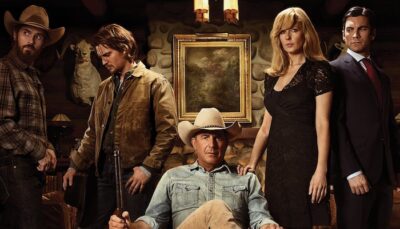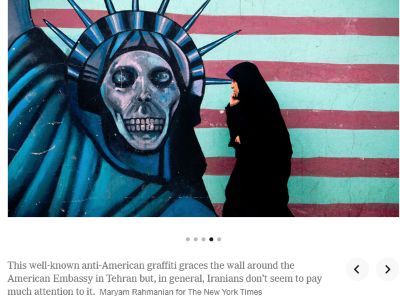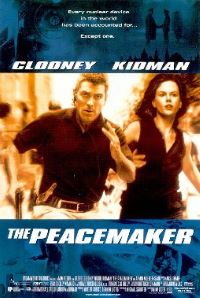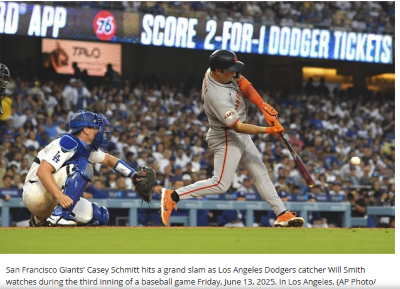
Kevin Costner is still having a moment (see Tom Cruise, Kevin Costner, Donald Trump, and Joe Biden: The Heroes We Want vs the Leaders We Have). The fifth season of the hit series Yellowstone has arrived. It has done so with extensive media coverage far beyond what one would expect from a TV series. For example:
11/10/22 How Taylor Sheridan created America’s Most Popular TV Show (The Atlantic)
11/10/22 Is Yellowstone a Red-State Show? According to Fans, the Answer Is Complicated (online)/ Everybody Loves a Cowboy (print) (Time)
11/13/22 In ‘Yellowstone,’ the Land Votes (NYT print)
11/16/22 The Best Character on Yellowstone Is Also Its Worst Person (The Atlantic)
11/29/22 Bridging Hollywood and Native Realms (NYT print).
All in all, the above examples are an impressive performance of media coverage.
To be sure, Tom Cruise is still getting his due. During the binge run-up to the opening episode of Season 5, there were plenty of ads for his Top Gun movie to be shown in December on the same network. There also were plenty of ads for the new series starring Rocky/Rambo. To top it off, the movie following one day’s binging was Gladiator so we can see the niche Paramount is carving out for itself.
In the previous blog, I noted that Yellowstone existed in a TV universe populated by such shows as Bonanza, Dallas, Dynasty, Law and Order, NCIS, CSI, and Blue Bloods. These long running shows frequently with spin-offs share some common characteristics. In some of them there are actual biological families involved while others are episodic and have work families. In this blog, I wish to address the similarities and differences between Blue Bloods and Yellowstone. I write this blog wondering if there is any audience overlap between these two shows set in New York City and Montana, what it means if there isn’t, and what it means if there is?
FAMILY
In both shows, family comes first but the families are both eerily similar and distinctly different.
In both shows, a patriarchal figure is the pivotal figure. The actors came to the shows with previous national renown. By coincidence, there just was a big article about Tom Selleck and the movie Mr. Baseball (NYT 11/29/22 print). The movie is not in the same league as Bull Durham or Fields of Dream, but apparently for American baseball players headed to Japan to play baseball, it is required viewing still after 30 years. In any event, both shows are led by strong male actors already known to the public.
In both shows, there is no matriarchal figure. She is dead before the show begins although there always is the option for flashbacks.
In both shows, an adult son dies/is murdered. I confess I have not seen the death scene in Yellowstone and didn’t even realize that there was one. In Blue Bloods, the son dies before the first show and is remembered constantly.
In both shows, sons Kaycee and Danny served in the Middle East and brought home traumatic memories which sometimes appear in various episodes.
In both shows there is a Harvard-law-school educated son named Jamie. The Yellowstone Jamie pursues a legal/political career in the show. He thought he was going to become governor until his father did instead. By contrast, the Blue Bloods Jamie followed in his father’s steps as a beat cop. He has a long way to go if he is going to work his way up to being commissioner especially as a heterosexual Irish Catholic white male since times have passed him by.
In both shows there is a fighting daughter. In Blue Bloods, Erin fights using the law. In Yellowstone, Beth fights by whatever means it takes. The article cited above about the best and worst character in the show is about her.
Both families have family meals … sort of. In Blue Bloods, the Sunday family dinner is one of the staples of the show. Attendance at the dining room table has been fairly consistent over the years excluding people who outgrow their roles or marry into the family. Sometimes the discussions become heated, but the gospel remains “let’s keep it civil” and family comes first.
The Yellowstone table is a battleground. There is no consistency on who will be seated when the meal begins. And one can practically guarantee that after a heated exchange of words expressing true animosity, someone will leave the table.
RELIGION
In Yellowstone there is no religion. When daughter Beth marries, they practically “kidnap” a priest to officiate at the ceremony. The denomination is irrelevant. He doesn’t know the couple and they don’t know him. I don’t recall any scene involving a church although it is quite possible there was one.
In Blue Bloods, religion in front and center. The family says grace before the Sunday dinner. They went to parochial school. They attend church together. They are on a first name basis with priests and bishops. The Church figures in some episodes. All in all, the Reagan’s are a good Irish Catholic family in a truly urban show.
GUNS
Guns play an important part in the storylines of both shows. One might expect that from a cop show. However, as the Chief of Police notes, cops rarely draw their guns, let alone discharge them, let alone wound or kill someone. In the TV show, Danny Reagan practically fires his weapon every show or so it seems. There are plenty of SWAT episodes and shoot outs, the kind you never read about in paper but which seem to routine for urban TV cops. Initially, after a fatal shooting, Danny had to go through a great deal of debriefing and paperwork. That process still applies the first time someone else kills someone for the first time. For Detective Danny, the writers must have realized that they needed him blazing away show after show without being hampered by paperwork or suspension from service pending an investigation of the shooting.
In Yellowstone, the guns are privately owned. They are a testament to the so-called Second Amendment advocates. The Duttons take the law into their own hands. It is a show of the wide-open West even in the 21st-century. People viewing the series for the first time, will be surprised at how irrelevant the law is. The Duttons do what has to be done to protect the family ranch.
Special note should be made of some distinctions between the two shows.
There is no Blue Bloods counterpart to the mean, nasty, insulting mouth of Yellowstone’s Beth. Her vitriol is always personal. She doesn’t uncorked her animosity against peoples of any hyphen. It is always directed against individuals, generally face to face. It is as if she is doing it for sport and the victims are her hunting trophies. In the course of a mere four shortened seasons, she has accumulated quite a trophy room. Erin Reagan’s trophies are the people she has convicted in a court of law; Beth’s are the people she has eviscerated in a non-legal arena.
There is no path for succession in Blue Bloods. Once the patriarch steps down as chief of police, it is curtains for the show. Perhaps it could continue as a Law and Order type show but it wouldn’t be the same. The family glue would be gone.
Yellowstone is aware of this problem. Rancher John Dutton like Chief of Police Frank Reagan has followed in his father’s footsteps. Now he has taken a career change by becoming governor of the state. The change creates a raft of new storylines but he is as much a fish out of water as if Frank Reagan became mayor of New York City. Of course, Dutton has become governor in the TV world and not the real world. That gives him the option of ignoring many of the culture-war issues that some governors in the real world feast on. It is strictly up to Taylor Sheridan whether or not any such issues are written into the show. If it happens, the show that avoids being a red-state or blue-state show will have to take sides. Whatever decision is taken on any particular culture war issue would then alienate some of the audience. The show might lose some of its cachet.
In this regard, Yellowstone may confront the dilemma of another show that was a media favorite without ever becoming a fan favorite. Friday Night Lights became a national phenomenon without ever garnering bigtime ratings. The TV series based on a movie based on a book managed to become part of the national vocabulary. This Texan high school with its football team and related community connections drew a non-red state audience which cared about what happened to some of the characters. The situation may be different with Yellowstone – you watch the characters perform but do you care about any them as people?
INDIANS
The big difference between the two shows, the urban and the wide open West is the Confederated Tribes of Broken Rock. It is a casino owning fictional Indian nation. Its elected chief Thomas Rainwater loves the land, the same land as John Dutton’s ranch. Sometimes they are allies, sometimes they are foes.
Kaycee Dutton has married a daughter of the tribe. Initially her brother will not speak to her husband. Later Kaycee participates in a vision quest assisted by Mo (short for Moses), the assistant to Rainwater. He started as a nameless driver in the series and now has become a named character in it.
It is in these relationships where Yellowstone has an opportunity to be something more than it is. The show makes the Indians part of the story without being a condescending woke elitist or a cowboy-and-Indian cavalry to the rescue show. Where this storyline goes is in the mind of one person, Taylor Sheridan. He is not writing a history as much as crafting a new national narrative. In so doing he will reach more people about Indian and American relationships than a scholar will.
Urban Blue Bloods potentially could become something more than it is. Suppose for example Blue Bloods Jamie ran for New York City Council and had to deal with the issues that the real Council has to address. One wonders what would happen to the audience if it did. One wonders if the elitists would recognize the show for having made that change.
The story of the relationship between the American Indian and the American settler and the land they share in common as part of their heritage is a story of national importance. So far Sheridan has shown he is prepared to write that story about real people. How far he takes it remains to be seen. Even he probably doesn’t even know for sure at this point. Watching that story play out among real people probably is unique in TV series and gives the show a great power. Who cares if the elitists always overlook Yellowstone in their awards ceremonies if the show wrestles with these real world challenges that the nation faces?





